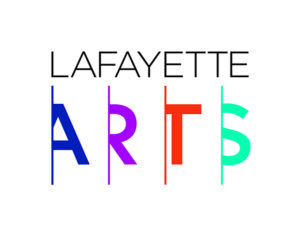Lafayette College earns major arts and technology grant
Lafayette College has received a competitive, four-year $500,000 arts and technology grant from the Sherman Fairchild Foundation. The funding will be used to transform three existing studio spaces to create an immersive arts lab, electronic music studio, and digital imaging studio. A culminating arts festival will be held in 2026.
“Lafayette College thrives at intersections,” says Nicole Farmer Hurd, president. “Where others say ‘or,’ we say ‘and.’ This grant support illustrates the power of ‘and’ as arts, technology, and a multitude of campus collaborators build, explore, and expand our combination of liberal arts and engineering.”
 “Lafayette Arts was poised for this achievement,” says Jennifer Kelly, associate professor of music and former director of the arts. “The arts at Lafayette have evolved over the past decade to form a group of cohesive and collaborative voices, and that cohesion has created opportunities to have more impact than any one department could achieve on its own. These efforts over the years that crossed departmental boundaries made it possible to offer a distinct vision and concept. Being a part of the collaborative efforts of faculty, staff, and students throughout the two-year competitive grant process was one of the most rewarding experiences I’ve had at Lafayette. I am so proud of us!”
“Lafayette Arts was poised for this achievement,” says Jennifer Kelly, associate professor of music and former director of the arts. “The arts at Lafayette have evolved over the past decade to form a group of cohesive and collaborative voices, and that cohesion has created opportunities to have more impact than any one department could achieve on its own. These efforts over the years that crossed departmental boundaries made it possible to offer a distinct vision and concept. Being a part of the collaborative efforts of faculty, staff, and students throughout the two-year competitive grant process was one of the most rewarding experiences I’ve had at Lafayette. I am so proud of us!”
The team assisting with the grant application included Kelly; Karina Skvirsky, associate professor of art; Katherine Groo, assistant professor of film and media studies; Chris Badami, instructor of music technology; Alexander Owens, technical director in theater; Suzanne Westfall, professor of theater; Kirk O’Riordan, associate professor of music, and Nestor Gil, associate professor of art.
The grant will provide the capital to invest in new technologies to expand one lab and transform two spaces into labs, as well as support the incorporation of technology into existing curricula, invite visiting artists and scholars to share their work and perspectives, develop new courses, support student exploration, showcase new creative work with a variety of audiences, and celebrate art and technology through a yearlong arts and technology festival, which will correspond with the bicentennial of the College’s founding.
“This award helps to propel the arts forward, inviting the whole campus community into some of the interdisciplinary work and conversations that Lafayette Arts is invested in,” Kelly says. “The support means students and faculty from any discipline can join us in exploring the nexus of arts and technology.”
In 2019 a new music lab opened, which Badami helped design so it could accommodate future growth. “The control room footprint and structure were in place, and now we plan to purchase the equipment to make it a fully functional professional recording studio with both digital and analog tools,” Badami says. “We soon will have a collection of microphones in order to record a full band or small ensemble as well as voice-overs for podcasts and audiobooks.” He is already expecting to add new courses like multimedia audio production and advanced audio mixing.
Groo was working with Dennis Johannßen, assistant professor of German, on a video game research space and earned a startup grant that allowed for the purchase of some essential technology. Conversations with Owens consistently revealed intersections and collaboration points as experimental theater used gaming technology to alter its relationship with an audience. An immersive arts lab was born.
“The boundaries between video games, cinema, and theater have begun to blur in interesting and complex ways. The grant will make it possible for our students to not only learn about the new forms of virtuality, embodiment, and narrative expression that contemporary technology makes possible, but also to experiment with these tools in their own projects,” Groo says.
“As we engage with and push the technology, we hope to create new pathways to creativity for both the students and audiences,” Owens says.
Prof. Groo will assume project leadership of the grant from Prof. Kelly in January 2023. Karen Marmaras will continue to serve as the project coordinator.
The grant also will outfit a digital imaging studio, repurposing a room in Williams Visual Arts Building for experimentation and exploration with photography, video, and multimedia art, including light-mixing, green-screen capability, and virtual reality.
Williams Center for the Arts will install video projector equipment to allow artists to incorporate still and moving images in performances.
New student media fellows will assist with training students, as well as organizing, tracking, and monitoring of equipment and space.
The funds will give Lafayette faculty the resources they need to create student engagement with state-of-the-art technology, allowing students the chance to work with and consider technology in a new context and with a new perspective.
“We fully expect this funding to allow us to continue our pre-pandemic trend of increasing the number of students we are attracting to the arts,” Kelly says. Prior to the pandemic’s disruption of traditional delivery of arts curriculum, enrollments in arts courses increased by 10% from 2015 through 2019.